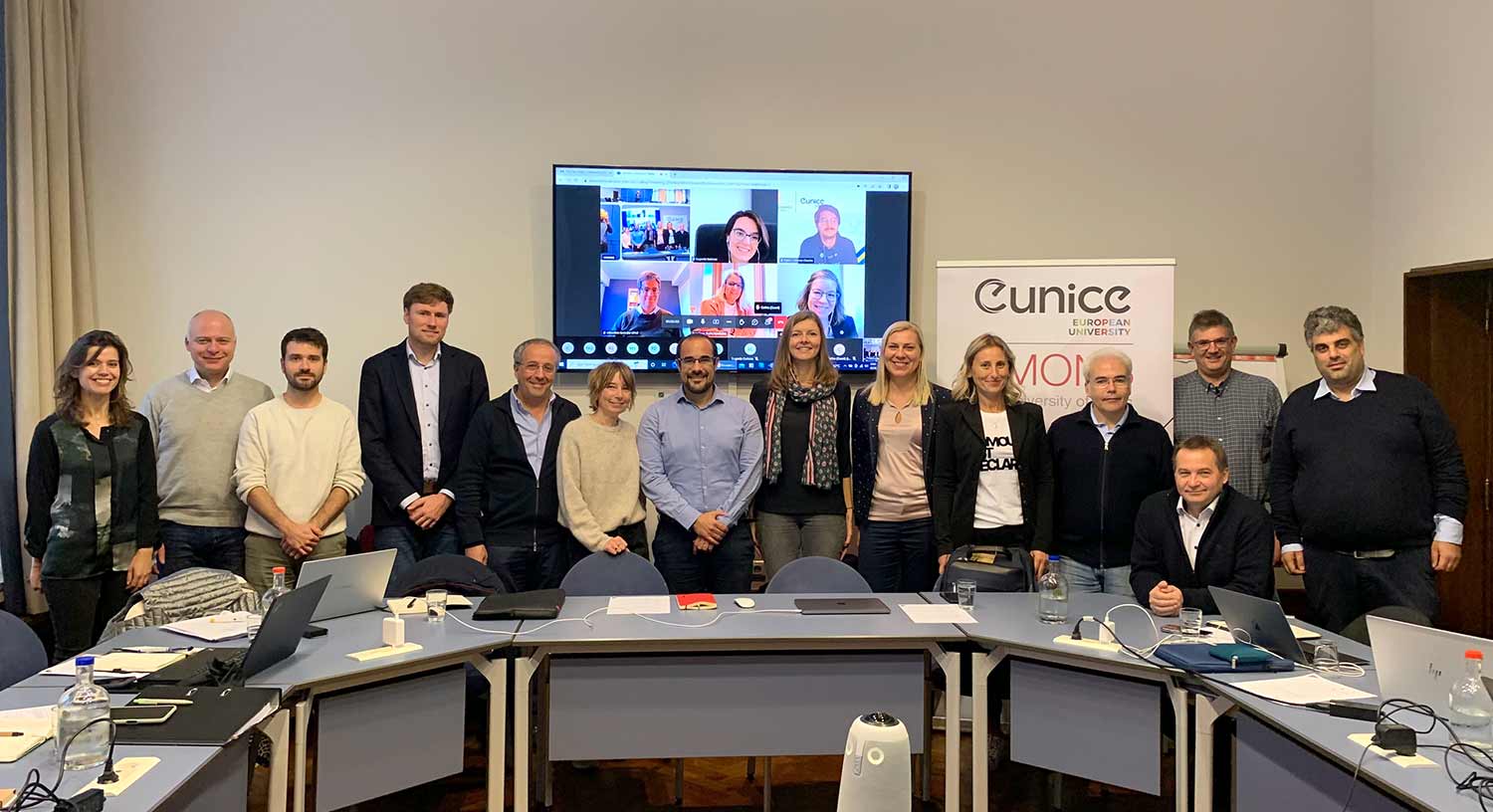Representatives of the ten partner universities met in Brussels as part of the work to define the long-term project
Representatives from the ten partners of EUNICE European University, met on 20th October in Brussels (Belgium) to work on the new proposal that will continue the project for another four-year period and implement its initiatives in a total of ten countries.
The European Union, through the European Commission, has launched a new call to support the further rollout of the European Universities Initiative, to which EUNICE intends to apply. With its long-term strategy defined and the recent addition of 3 new partners this application will secure funding until 2027, thus ensuring the sustainability of the project and increasing the competitiveness of this European University

Caption: The members of the Roll-Out Committee met in Brussels.
The meeting was chaired by the Vice-Rector for International Relations of Poznan University of Technology (PUT) Professor Paweł Śniatała, coordinator of the EUNICE consortium, and was opened by Iwona Jablonska, project officer responsible for the EUNICE consortium on behalf of the European Commission.
This committee of representatives of EUNICE has been meeting since summer to develop the basis for a new application that aims to further boost partner universities in key areas such as internships, joint research, mobility, internationalisation and customized education. The proposal will be submitted in January 2023.
About EUNICE
EUNICE European University for Customised Education is nurtured by the intellectual and infrastructural contributions of ten universities: Poznań University of Technology (Poland), Brandenburg University of Technology (Germany), University of Cantabria (Spain), University of Mons (Belgium), University of Catania (Italy), Université Polytechnique Hauts-de-France (France), University of Vaasa (Finland), University of Peloponnese (Greece), Polytechnic Institute of Visseu (Portugal) and University of Karlstad (Sweden).
The Alliance, selected in the 2020 Call of the Erasmus+ programme for the specific action European University Initiative (EUI), aims at a paradigm shift from traditional education to customised, flexible, open, multicultural, multicentric, innovative and engaging education, capable of meeting the needs of student, individuals, and society in general.




